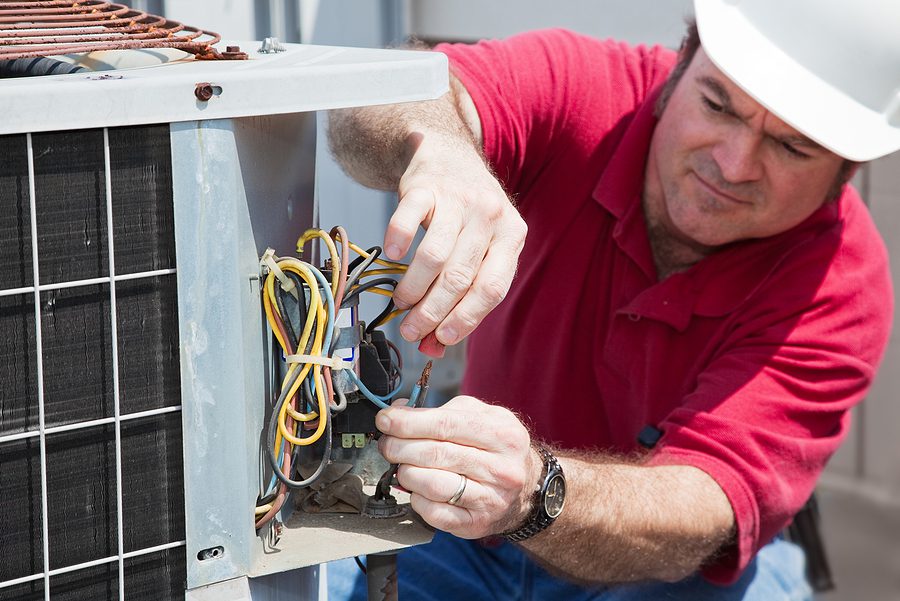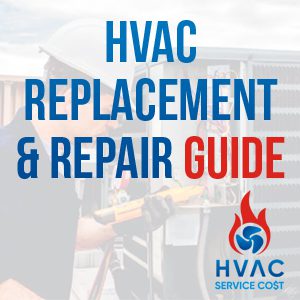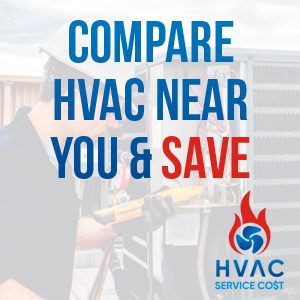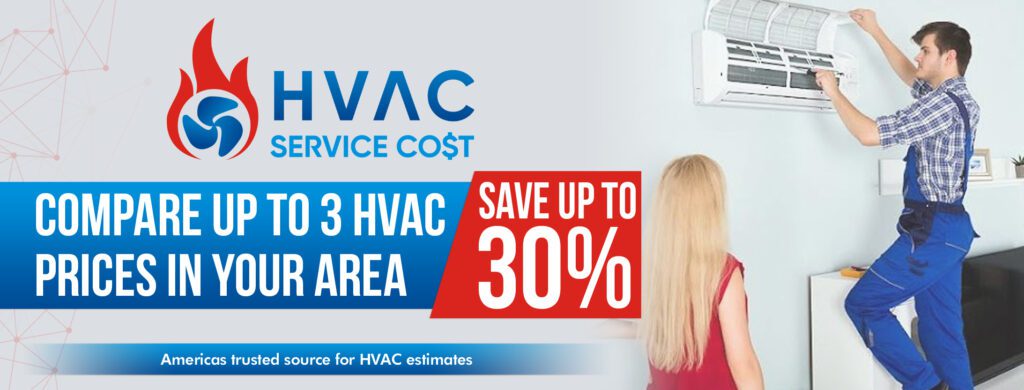
8 Important Questions to Ask Your HVAC Company Before HVAC Replacement
Whether your HVAC system is nearing the end of its life or you’re simply looking to upgrade, replacing it is a significant investment. Before you make the commitment, it’s essential to have a clear understanding of what the process entails. By asking your HVAC company the right questions, you can ensure you’re making an informed decision that meets both your comfort needs and budget. Here are eight critical questions you should pose to your HVAC contractor before proceeding with a replacement.
COMPARE QUOTES NOW1. Is a Full Replacement Necessary?
Before diving into the details of a new system, ask if a complete replacement is necessary. Sometimes, minor repairs or part replacements might be sufficient to extend the life of your existing system. A trustworthy contractor will provide an honest assessment rather than pushing for a more expensive replacement.
2. What Size System Do I Need?
An HVAC system that’s either too big or too small for your space can lead to inefficiencies and higher energy bills. Your contractor should perform a load calculation to determine the appropriate size, taking into account factors like your home’s size, insulation, window placement, and more.
3. What’s the Energy Efficiency Rating?
It’s crucial to understand the energy efficiency of the new system. Ask about the Seasonal Energy Efficiency Ratio (SEER) for air conditioners and the Annual Fuel Utilization Efficiency (AFUE) for furnaces. A higher rating indicates a more efficient unit, which can translate to energy savings in the long run.
4. Are There Any Rebates or Incentives Available?
Many manufacturers, local utilities, and government programs offer rebates or incentives for installing energy-efficient HVAC systems. Your contractor should be aware of any current offers that could reduce your out-of-pocket costs.

5. How Long is the Warranty, and What Does it Cover?
Understanding the warranty is essential to avoid unexpected expenses in the future. Ask about the length of the warranty, what it covers (parts, labor, or both), and any actions or circumstances that might void it.
6. How Long Will the Installation Take?
Knowing the timeframe for installation can help you plan accordingly. While many replacements can be completed in a day, some might take longer, especially if additional work like duct replacement or modification is required.
7. What Brands Do You Offer, and Why?
Different HVAC companies may carry different brands. Inquire about the brands they offer and their reasons for doing so. It can give you insight into the quality and reliability of the systems they install.
8. How Will the New System Improve My Home’s Air Quality?
A modern HVAC system can do more than just heat or cool your space; it can also improve your home’s air quality. Ask about features like air filtration, humidification/dehumidification, and ventilation that can enhance indoor air quality.
COMPARE QUOTES NOWAn HVAC replacement is not only about getting a new system but ensuring it’s the right fit for your home and budget. By asking these vital questions, you arm yourself with the knowledge needed to make an informed decision. Remember, a reputable HVAC company will always be willing to provide clear and honest answers to your queries.

Top Signs Your HVAC System Needs to be Replaced
As homeowners, we often expect our HVAC systems to run seamlessly in the background, keeping our living spaces comfortable year-round. However, like all mechanical systems, HVAC units have a finite lifespan and will eventually require replacement. Recognizing the early signs of a failing system can save you from sudden breakdowns and potentially higher energy bills. Here are some indicators that it might be time to consider a replacement:
Age of the System
Typically, air conditioners last between 10 to 15 years, while furnaces have a lifespan of 15 to 20 years. If your system is approaching or has surpassed this age range, it might be time to consider a replacement, especially if you’re experiencing other issues.
Rising Energy Bills
An unexpected spike in your energy bills, despite no significant change in usage, can indicate that your HVAC system is losing its efficiency. As systems age, they often have to work harder to produce the same results, leading to increased energy consumption.
Frequent Repairs
If you find yourself calling for repairs frequently, it might be more cost-effective in the long run to replace the system rather than continually fixing it. The costs of repeated service calls and parts replacements can quickly add up.
Inconsistent Temperatures
Experiencing hot or cold spots in different areas of your home can be a sign that your HVAC system isn’t distributing air evenly. This inconsistency can be due to a failing system or problems with the ductwork.
Excessive Noise
While all HVAC systems make some noise during operation, sudden loud or unusual noises can indicate a problem. Grinding, squealing, or banging sounds can be particularly concerning and might signal a need for replacement.
Poor Indoor Air Quality
If you notice increased dust accumulation, humidity issues, or worsened allergy symptoms, it could be a sign that your HVAC system is no longer effectively filtering and circulating air.
System Runs Continuously
An HVAC unit that’s constantly running or frequently cycling on and off may be struggling to maintain the desired temperature. This constant operation can wear the system out more quickly and drive up energy costs.
Obsolete Refrigerant
Older air conditioning units might use refrigerants that are being phased out due to environmental concerns. If your system uses an obsolete refrigerant like R-22, replacing it with a newer, more environmentally friendly model could be a wise choice.

Being attuned to the performance and behavior of your HVAC system is crucial. While no one looks forward to the expense of replacing a major home system, a timely replacement can offer improved efficiency, better air quality, and peace of mind. Moreover, by recognizing these signs early, you can plan for the replacement and potentially take advantage of promotional deals or rebates.
COMPARE QUOTES NOWKey Features to Look for in an HVAC Company
Selecting the right HVAC company is as crucial as choosing the correct system for your home. Your comfort, safety, and wallet depend on making an informed decision. Here are some key features you should consider when searching for the best HVAC company:
Licensing and Insurance
One of the foremost considerations is ensuring the company is licensed to operate in your state. A proper license indicates that the company has met specific training and operational standards. In addition, the company should be insured to protect homeowners from potential liability in case of accidents or damage.
Experience and Expertise
Look for a company with a track record of providing high-quality services in the industry. Experience often translates to expertise. Companies that have been around for a significant time typically possess the know-how to handle a range of HVAC issues.
Good Reviews and Recommendations
In today’s digital age, customer reviews and ratings are easily accessible. Research online reviews, ask for testimonials, and seek recommendations from friends or family. Positive feedback from previous customers can provide insights into the company’s reliability and quality of service.
Availability and Responsiveness
Your HVAC system can experience issues at any time. A company that offers emergency services or has extended hours can be invaluable, ensuring that you’re never left without heating or cooling when you need it most.
Clear Estimates and Transparent Pricing
Trustworthy HVAC companies should provide clear, written estimates for their services. This includes a breakdown of costs for labor, parts, and any potential additional charges. Transparent pricing without hidden fees is a sign of an honest company.
Warranties and Guarantees
Reputable HVAC companies often offer warranties on their work, ensuring that if something goes wrong shortly after a service or installation, corrections will be made without additional charges. This not only demonstrates confidence in their work but also provides peace of mind to homeowners.

Continual Training
The HVAC industry is continually evolving, with new technologies and techniques emerging regularly. A top-tier HVAC company will prioritize ongoing training for its technicians, ensuring they are up-to-date with the latest industry standards.
Brands and Equipment Offered
It’s beneficial if the company offers a variety of high-quality HVAC brands and models. This allows homeowners to choose the best system for their needs and budget.
Local Presence
A local company is likely more attuned to the specific needs and climate conditions of your area. Plus, a local presence often means quicker response times and a deeper commitment to community satisfaction.
Customer Service
Lastly, but by no means least, is the quality of customer service. The company should be easy to communicate with, courteous, and focused on meeting the customer’s needs.
COMPARE QUOTES NOWChoosing an HVAC company is a decision that can impact your home’s comfort and your finances for years to come. By paying attention to these key features, you can select a company that not only installs your system but also ensures it operates efficiently and reliably for its full lifespan.

How Much Should You Expect to Pay for a Full HVAC Replacement?
An HVAC replacement is a significant home investment. While the precise costs can vary widely based on several factors, it’s beneficial for homeowners to have a general understanding of the potential expenses involved. Here’s a breakdown of what you might expect:
Average Costs
On average, the cost of replacing an HVAC system can range from $5,000 to $10,000. However, this price can be higher or lower depending on your specific needs, the type of system you’re considering, and labor costs in your area.
Factors Influencing Costs
- System Size and Capacity: Larger homes or those with more rooms will generally require a more substantial and powerful HVAC system, increasing the cost.
- System Type: Different types of systems come with varying price tags. For instance, central air systems might have a different cost than ductless mini-split systems.
- Efficiency Ratings: High-efficiency systems can have higher upfront costs but may save money in the long run due to reduced energy bills.
- Brand and Model: Premium brands might have a higher price point than their more affordable counterparts.
- Installation Complexity: If your home requires additional ductwork or other modifications to accommodate the new system, this can increase the total replacement cost.
- Labor Costs: Labor rates can vary based on the region, the company’s expertise, and the time of year. Peak seasons might see a surge in labor costs.
- Additional Features: Advanced features such as smart thermostats, zoned systems, or air purifiers can add to the overall cost.
Potential Additional Costs
Beyond the system itself, homeowners should also be prepared for some potential additional expenses:
- Ductwork replacement or modification: If your ducts are old, leaky, or improperly sized, they may need to be replaced or adjusted.
- Permit fees: Many municipalities require permits for HVAC system replacements.
- Disposal of old system: There might be a fee associated with safely disposing of or recycling your old HVAC unit.
While HVAC replacement costs can seem daunting, it’s crucial to view this investment in the context of the long-term benefits: improved comfort, enhanced energy efficiency, and potential savings on monthly energy bills. Proper research, obtaining multiple quotes, and understanding what’s included in each estimate can help ensure you get the best value for your investment.

Top 10 HVAC Systems in 2023
The HVAC industry is continually evolving, with manufacturers focusing on energy efficiency, innovative technology, and homeowner comfort. If you’re in the market for a new HVAC system in 2023, here’s a list of the top ten options, renowned for their reliability, efficiency, and advanced features:
1. Trane
Recognized for durability and a long-standing reputation, Trane offers a range of models that frequently rank high in efficiency ratings and customer satisfaction.
2. Carrier
A leading name in the industry, Carrier systems stand out for their efficiency, quiet operation, and performance, especially their Infinity Series.
3. Goodman
Favored for its value for money, Goodman offers affordable systems without compromising on quality or reliability. Their warranty is also one of the industry’s best.
4. Daikin
As the world’s largest air conditioning company, Daikin offers innovative HVAC solutions, with a particular emphasis on energy efficiency and advanced inverter technology.
5. Lennox
Known for high efficiency, Lennox systems often incorporate cutting-edge technology such as solar compatibility and precise comfort features.
6. Rheem
Rheem is renowned for its wide range of both traditional and modern HVAC units, focusing on energy-saving features and reliable performance.
7. Mitsubishi Electric
For those considering ductless options, Mitsubishi Electric leads the pack. Their mini-split systems are known for efficiency, quiet operation, and zoned comfort.
8. American Standard
Closely related to Trane, American Standard HVAC systems are lauded for their reliability and range of efficient options suitable for various home sizes.
COMPARE QUOTES NOW9. York
With a broad offering, York systems cater to both residential and commercial needs. They are also known for their energy-efficient designs and durable components.
10. Bryant
A subsidiary of Carrier, Bryant delivers reliable performance and offers a range of systems, from basic models to those with advanced features like variable speed compressors.

When selecting an HVAC system, it’s crucial to consider the specific needs of your home and local climate. Each brand offers a unique set of advantages, so consulting with a trusted HVAC professional can help guide your decision. Remember to factor in energy efficiency ratings, warranty terms, and potential rebates or incentives available in your region. An informed choice will ensure comfort, energy savings, and peace of mind for years to come.
Important Considerations Before Replacing an HVAC System
Upgrading or replacing your HVAC system is a significant investment, and there’s more to the decision than just choosing a reputable brand. There are various facets to contemplate before making a final call. Here are some critical considerations that can help homeowners make informed decisions:
1. Assess Your Current System
Before diving into the selection of a new system, evaluate your current setup. How old is your existing HVAC? If it’s over 15 years, it might be nearing the end of its lifespan. However, some occasional issues might be fixed with repairs rather than a complete replacement.
2. Home Evaluation
Each home has its unique requirements based on its size, layout, insulation, and even the direction it faces. Ensure that the new system is appropriately sized for your home. An overly large or small system can lead to inefficiency and discomfort.
3. Energy Efficiency
Check the Seasonal Energy Efficiency Ratio (SEER) rating for air conditioners and the Annual Fuel Utilization Efficiency (AFUE) for furnaces. A higher rating indicates better efficiency, which can translate to lower energy bills in the long run.
4. Future Savings vs. Immediate Costs
While high-efficiency systems may have a higher upfront cost, they can result in substantial savings on monthly energy bills. It’s worth calculating the long-term savings against the immediate costs.
COMPARE QUOTES NOW5. Ductwork Inspection
Your ductwork plays a vital role in the efficiency of your HVAC system. Before installing a new system, inspect your ducts for leaks, damage, or poor insulation. Properly maintained ducts ensure optimal performance.
6. Climate and Local Conditions
Your geographical location and local weather conditions can impact the type of system that’s best for your home. For instance, a heat pump might be more efficient in milder climates, while a furnace could be better for colder regions.
7. Advanced Features
Modern HVAC systems come with a plethora of advanced features, from smart thermostats to zoned systems. Determine which features align with your preferences and needs.
8. Rebates and Financing
Often, local utilities or government agencies offer rebates or incentives for installing energy-efficient HVAC systems. It’s a good idea to research available offers which can offset some of the installation costs.
9. Installation Timeline
Understand how long the installation will take, especially if you’re replacing your HVAC during peak summer or winter. You wouldn’t want to be without heating or cooling for an extended period during extreme weather.
10. Warranties and Service Agreements
Different manufacturers offer varying warranties. Understand the terms and duration of the warranty, and consider opting for extended warranties or service agreements for peace of mind.
11. Consultation and Multiple Quotes
Lastly, consult with multiple HVAC professionals. Obtain quotes from different service providers to compare prices, services, and recommendations. A trusted professional can offer valuable insights tailored to your home’s specific needs.

The decision to replace an HVAC system is multi-faceted, with numerous elements playing a role. By taking the time to thoroughly assess your home’s requirements and researching potential HVAC options, you can ensure that your new system will serve you efficiently and effectively for many years.
The Impact of Technology on Modern HVAC Systems
With technological advances reshaping industries worldwide, the HVAC realm is no exception. Today’s HVAC systems are not just about heating and cooling; they encompass a broader spectrum of capabilities that cater to modern homeowners’ desires for comfort, convenience, and efficiency. Here’s how technology is revolutionizing the HVAC landscape:
COMPARE QUOTES NOWSmart Thermostats and Controls
Gone are the days of manual dials or basic programmable thermostats. Modern HVAC systems are often paired with smart thermostats that learn from your habits. These devices can detect when you’re home, learn your preferred temperatures for different times of the day, and make automatic adjustments for optimal comfort and efficiency. With smartphone integration, homeowners can control their home’s climate from anywhere in the world.
IoT (Internet of Things) Integration
The Internet of Things (IoT) refers to the connection of devices (other than typical fare such as computers and smartphones) to the internet. In HVAC, this translates to systems that can provide data-driven insights about performance, predict potential issues, and even automatically schedule maintenance appointments.
Enhanced Air Quality Monitoring
Modern HVAC systems are increasingly equipped with sensors that can monitor indoor air quality. These systems can detect high levels of pollutants or allergens and then adjust settings to improve air quality. Some advanced units even send alerts to homeowners when filters need changing or when there are potential air quality concerns.
Zoning Systems
Traditional HVAC systems treated a home as a single zone, which could often lead to uneven heating or cooling. Modern systems, however, allow homeowners to create multiple zones within the home. This means that different rooms or areas can have personalized temperature settings, leading to increased comfort and more efficient energy usage.

Energy Analytics
As homeowners become more energy-conscious, many are interested in understanding their consumption patterns. Modern HVAC systems, with their advanced sensors and smart thermostats, can provide detailed energy analytics, offering insights into when and how energy is used, and suggesting potential areas for savings.
Greener Systems
The push for sustainable and environmentally friendly solutions has driven HVAC manufacturers to design systems with a smaller carbon footprint. From systems that use alternative or less harmful refrigerants to those that integrate seamlessly with solar panels, modern HVAC systems reflect a commitment to preserving the environment.
Quieter Operations
Technological advancements aren’t just about smart features and efficiency. They’ve also led to improvements in basic operational aspects, such as noise levels. Today’s HVAC systems are designed to operate more quietly, ensuring that comfort doesn’t come at the cost of constant noise.
Technology’s integration into HVAC systems has transformed how homeowners interact with, and benefit from, their heating and cooling systems. As technology continues to advance, we can expect even more innovative solutions that push the boundaries of comfort, convenience, and efficiency. Investing in a modern HVAC system not only ensures a comfortable living space but also offers a glimpse into the future of home automation and integrated living.
COMPARE QUOTES NOW


Leave a Reply